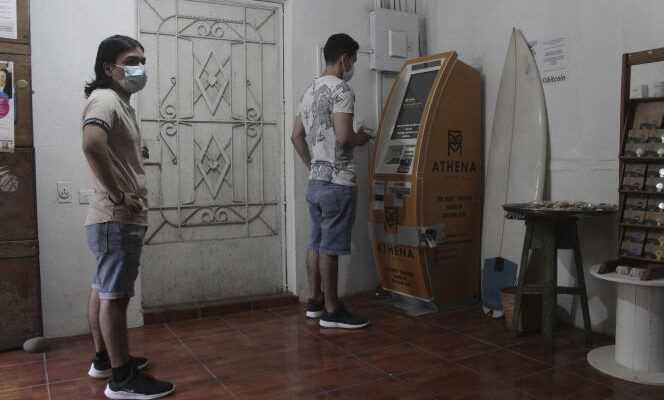It took less than five hours for the Legislative Assembly, on June 9, to pass the law, announced three days earlier on Twitter by the president, Nayib Bukele: that day, El Salvador became the first country to establish bitcoin as the official currency, in addition to the US dollar adopted twenty years earlier. The “Bitcoin” law will come into effect on September 7th.
In this small Central American country of 6.5 million inhabitants, commentators, analysts, economists tried for two weeks, for lack of official explanations, to decipher the text: what impact for the economy? On inflation? Will the $ 150 million (€ 126 million) fund announced to offset bitcoin’s extreme volatility be enough? Who will guarantee that its value will not crash one day, when it has been almost halved in two and a half months, going from 65,000 dollars in mid-April to 33,000 on the 1st.er July ?
The #BitcoinLaw has been approved by a supermajority in the Salvadoran Congress. 62 out of 84 votes! History! # Btc??
“If it is compulsory, we will have to resign ourselves to it, but, for now, we are just trying to understand, sighs Carmen Rodriguez, 59, a street vendor from downtown San Salvador. It was perhaps not the most urgent to do… ”, while 40% of the population lives below the poverty line, only 45% have Internet access and more than 70% work informally, without a bank account and without social security.
These data are however advanced by President Bukele to justify the adoption of cryptocurrency, which will allow, according to him, “Financial inclusion” of the most disadvantaged and the arrival of foreign investments. Another argument, while remittances from the diaspora in the United States to their families back home, remesas, represent more than 20% of the GDP: the payment in bitcoins avoids the heavy commissions of the banking or financial intermediaries.
Digital wallet
On June 24, two weeks after the vote and with all speculation circulating about the interpretation of the law, the president finally explained how it worked. In a one-hour speech broadcast by all television and radio channels, he gave details that sometimes raised more questions than answers. Contradicting, for example, Article 7, which obliges any economic agent to accept bitcoin as a means of payment, he assured, somewhat confusedly, that this would in fact be optional: “The merchant will have the obligation to accept them, but not to receive them, because he will have the option to instantly convert bitcoins received into dollars, without commission. “
You have 73.59% of this article to read. The rest is for subscribers only.
